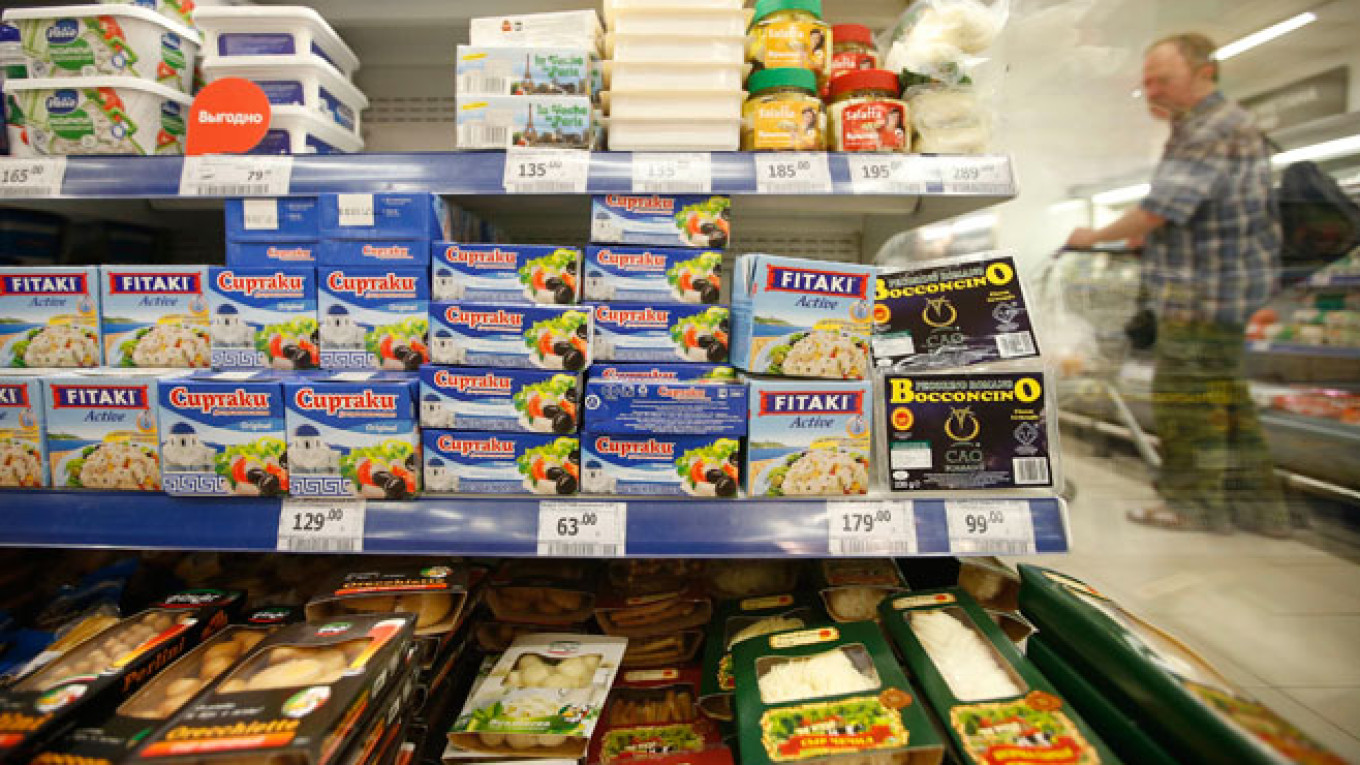"Western leaders struggled for months over how best to hurt the Russian economy. Then Putin had a think and beat them at their own game" — so goes a joke currently circulating on social media.
Throughout the clash between Russia and the West over the fate of Ukraine, the West has tried to pursue its geopolitical aims without harming the well-being of its own citizens. The Russian gas industry, which heats millions of European homes, has been left alone. Sanctions against the Russian oil sector are on a slow burn, weakening Russian oil majors in the long term but leaving export prices untouched. Western banks have lost no money and can direct their investment elsewhere. ?
Russia's retaliatory bans on food imports from countries that sanction it, however, will hit Russian consumers hard. According to an assessment by bank UniCredit that was cited by The Wall Street Journal, the countries that have sanctioned Russia provide it with more than 54 percent of its meat imports, 52 percent of fish, about 30 percent of fruit and vegetables, and a quarter of beverages.
Even if Russians don't see empty supermarket shelves, they will face a massive reduction in choice as products such as French cheese, Spanish ham and Polish apples vanish. Meanwhile, prices will rise as retailers are cut off from cheap Western goods.
The effect of this will be to speed inflation, which has reached 7.5 percent partially due to existing punitive import bans. To combat runaway price rises, the Central Bank will likely be forced to push up interest rates beyond the current 8 percent.
The exodus of Western capital from Russia following the annexation of Crimea has already made it harder for Russian companies to borrow. Higher interest rates would exacerbate the credit drought and force businesses to fall back on a government that could quickly run down its reserves. Hopes that Russia can dig its way out of economic stagnation would be dashed.
That Putin resorted to this retaliation demonstrates the disparity of power between Russia and the West and shows either a disregard for Russians' well-being or an iron faith in their patriotism. If it turns out that Russians prefer cheddar cheese to chest-thumping patriotism, Putin will have done more to further the West's aims than the West has managed on its own.
See also:
A Message from The Moscow Times:
Dear readers,
We are facing unprecedented challenges. Russia's Prosecutor General's Office has designated The Moscow Times as an "undesirable" organization, criminalizing our work and putting our staff at risk of prosecution. This follows our earlier unjust labeling as a "foreign agent."
These actions are direct attempts to silence independent journalism in Russia. The authorities claim our work "discredits the decisions of the Russian leadership." We see things differently: we strive to provide accurate, unbiased reporting on Russia.
We, the journalists of The Moscow Times, refuse to be silenced. But to continue our work, we need your help.
Your support, no matter how small, makes a world of difference. If you can, please support us monthly starting from just $2. It's quick to set up, and every contribution makes a significant impact.
By supporting The Moscow Times, you're defending open, independent journalism in the face of repression. Thank you for standing with us.
Remind me later.


